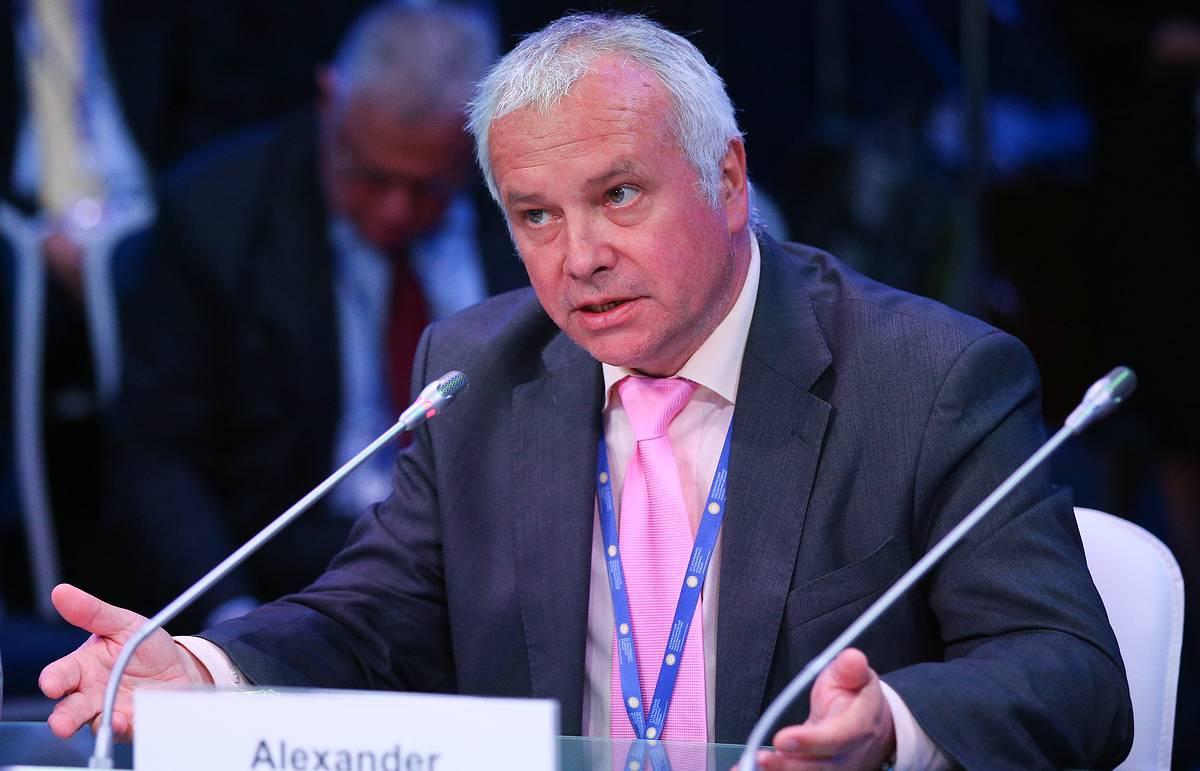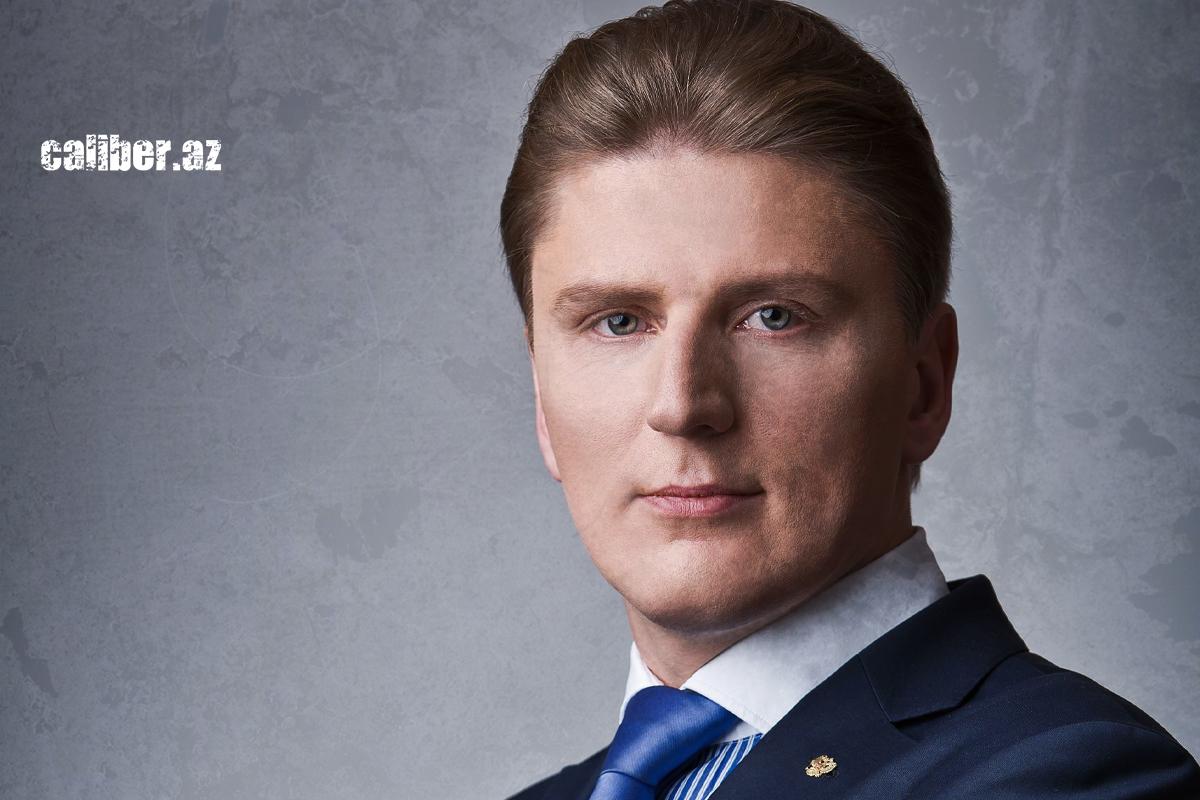European Parliament elections: Potential impact on EU-Azerbaijan ties Expert opinions on Caliber.Az
The European Parliament elections are approaching amidst lively public debate. Many analysts and media outlets believe that Europeans are noticeably tired of left-centrist and populist forces in the EU leadership, and they are obviously being replaced by right-wing and far-right forces, which are gaining popularity among voters and may make up the majority in the renewed European Parliament.
How will the relations between the EU and Azerbaijan develop after June 9? Caliber.Az correspondent addressed this question to foreign political scientists and analysts specializing in European politics.

According to Alexander Rahr, a German political scientist and professor at the Institute for International Politics WeltTrends in Potsdam, liberal elites, with the support of all Western media outlets, have done everything possible in recent weeks to discredit and vilify right-wing parties in the eyes of the electorate.
"It was evident how liberal elites fiercely fought to maintain their influence in the leadership of the EU. However, despite the discrediting of the right, they will receive greater support in all EU countries. The European Parliament will be ruled by the right. But liberal forces - leftists, Greens, centrists - are ready to conspire among themselves to prevent the advancement of the right into the power structures of the European Union. Scholz and Macron will do everything to keep Ursula von der Leyen as the head of the European Commission and effectively the 'head of Europe'. But the shift to the right cannot be stopped in Europe anymore, as the protest electorate is strengthening here, and the economy and social system in Europe are deteriorating, which people notice and become angry about.
I don't think that the European Union's foreign policy will undergo any significant changes; most likely, it will remain as it has been. Even if the right-wing gains a majority in parliament, it won't fundamentally change anything in my view—after all, the parliament itself is powerless; the EU is actually governed by the heads of state of member countries, and they are currently successfully maintaining their power. I think ultimately, we'll see the following: Eastern European countries will move towards re-nationalizing their policies, southern countries will do the same, and Germany will remain the main bastion of liberal values in Europe. It will continue to try to discipline everyone else in the 'right direction' and 'teach' them, as it did before," noted the political scientist.
According to Rahr, predicting how EU relations with Azerbaijan will unfold after the European Parliament refreshes is difficult.
"If the Greens and other liberal forces maintain their influence in parliament, then the current situation regarding Azerbaijan will generally remain unchanged. But if the right-wing forces prevail, the European Parliament will become less ideological, and deputies will act more rationally. The right-wing is less fixated on its own agenda and advocates for dialogue with countries outside the European Union; they are slightly less engaged with lobbying forces, they are more predictable, understandable, and unambiguous, to some extent realizing the obviousness that if you want to have successful economic relations, you should also build political relations with that partner," emphasized Rahr.

According to the director of the international public organization "Center for Political Analysis and Information Security," a member of the German Council on Foreign Relations, and the chairman of the Berlin Committee for Strategic Partnership in Eurasia, Svyatoslav Andrianov, there are many different countries represented in the European Parliament, and each has its own opinion on how to build relations with Azerbaijan. So hoping for the formation of some homogeneous position is not worth it. And this applies not only to Azerbaijan.
"If we talk about trends, then the Eurobarometer reports that voter turnout in the European Parliament elections will be quite high, reaching about 70 per cent. The voter is dissatisfied with the current policies of the European Union: in some countries, dissatisfaction is greater, in others, less. Experts predict a serious strengthening of far-right parties, but I would like to emphasize that if there is a strengthening, it is unlikely to reach a majority. But at the same time, everything can fall apart in a moment - pay attention to how in recent months, even with the involvement of special services, there has been an attack on the right-wing 'Alternative for Germany.' Thanks to a well-organized black PR campaign against 'AfD' in the media and social networks, the party has lost many votes - dropping in the ratings from 25 to 15 per cent. So, with the desire, any right-wing force in Europe can be obstructed, as is happening with the 'Alternative for Germany.' Meanwhile, the liberal-democratic lobby, which is in power, successfully suppresses any attempts by the party to justify itself and somehow take revenge," the political scientist noted.
According to him, media structures are becoming increasingly dependent on the governments of European countries, and this, of course, is worrying. Also, as Andrianov notes, the claims that have been unjustly made against Azerbaijan, Russia, and other countries by Europe for almost thirty years are an established agenda, and it should not be expected that it will simply disappear tomorrow.
"It is not very likely that right-wing forces coming to the European Parliament will start to deviate from this agenda in defence of 'democratic values.' Russia, Azerbaijan, and other post-Soviet countries have been receiving 'harsh admonitions' from EU politicians for decades, and I don't think new politicians will forget about this and start speaking differently. Many politicians in Europe simply do not want to understand that countries outside Europe have their own development peculiarities, individual social and political structures, and they do not necessarily have to live and think like EU countries. For example, within the EU itself, there are major problems with freedom of speech in Poland, as well as issues with political competition and elections. Yes, the European Union slightly rebukes Poland for these problems within internal dialogue, but no one accuses it of 'disregarding democratic principles' because Poland is a member of the EU, and that says it all. So double standards are already a common element of European politics," concluded Andrianov.








